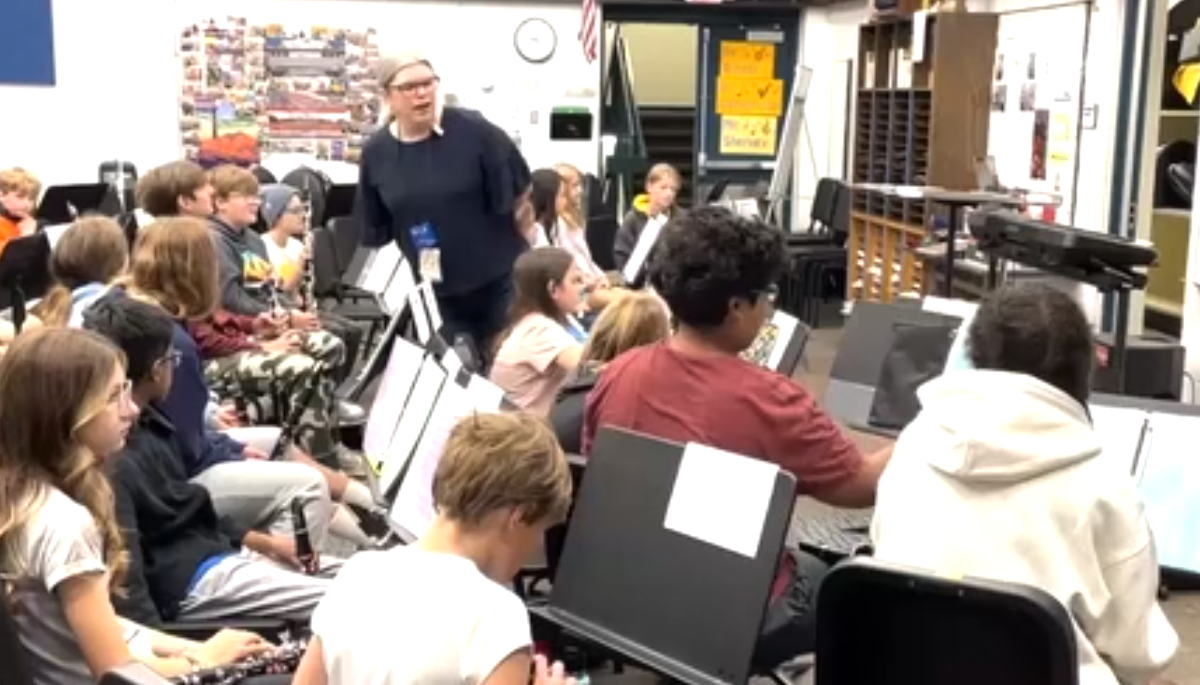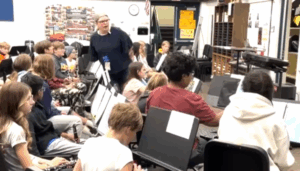The Teach Like a Champion team had a dilemma. Too many team members wanted to write our blog post in honor of Teacher Appreciation Week!
So we decided to share the mic and asked the whole team to contribute. It’s resulted in one of the longest and most enthusiastic posts of all time and still doesn’t come close to capturing how grateful we are all of you who spend your days in the most important space there is: the classroom. We consider ourselves, collectively, the luckiest to spend our time learning from your brilliance and passion. Thank you!

“Teaching is the hardest, yet best, work in the world because it is a gift of service – a gift of the heart. And there are few greater gifts a child can have than the love and care from an educator who knows their work is not simply to teach, but to reach and inspire their same passion and pursuit of greater knowledge in their students. Thank you all for giving your time, energy and hearts to students all over!”
– Alonte Johnson-James
Associate Director of Curriculum and School Support
“…I would gift to all teachers TIME: there are a million different reasons why: teachers need time to get to know all their students as people–to learn about their students’ passions and gifts, to learn about their challenges and needs (both in and out of the classroom), to learn about how best to reach them to help them succeed and grow. Then, teachers need time to implement best practices to serve their students: to study, practice, and reflect on research and techniques to make their classrooms amazing. Finally, teachers need time for themselves to recharge their own batteries, to connect with their own friends and family, so they can re-enter their classrooms as the best version of themselves to continue to shine for their students. ”
– Beth Verrilli
Senior Associate Director of Curriculum and School Support
“If I could wave a magic wand, I would give teachers the gift of time. Time to plan and collaborate with intention, time to reflect and grow professionally, and just as importantly, time to rest, recharge, and be present with the people they love. Too often, the demands of teaching stretch far beyond the school day, leaving little room for balance. I’d want every teacher to feel they could show up for their students without having to sacrifice their own well-being or the needs of their families. Because when teachers are supported both personally and professionally, everyone in the school community benefits.”
– Brittany Hargrove
Director of Advocacy and Partnerships
“Teaching is both the hardest job in the world because you are expected to meet or exceed the needs of 100% of your ‘clients’ every year – something no other profession even attempts. But by meeting the needs of the entire classroom, you form relationships that last a lifetime, and all the great work you do with your students increases exponentially as they continue their learning the following year.”
– Christian Sparling
Senior Director of Operations
“I wish we could celebrate Teacher Appreciation week by opening the doors to Staples for unlimited access to post-its, Flair pens, and stickers–the things you can’t live without; installing bottomless vats of Starbucks in every teachers lounge to fuel the endless and joyful energy you bring to your students; and with choirs following you around, singing your praises for doing the hardest, most important work in the world. Teachers, thank you for showing up every day to guide, inspire, and educate. “
– Colleen Driggs
Managing Director of Curriculum and School Support
“Thank you for seeing, valuing, and loving on our students each and every day. Teaching is hard work – but just like any obstacle or task done well, both the process and the outcome yield greater satisfaction. Our world is stronger, more vibrant, and a lot smarter because of the transformative impact of educators. We are forever indebted to you.”
– Denarius Frazier
Senior Advisor, Consulting & Partnerships Team
“I wish we could celebrate Teacher Appreciation Week by having the time and resources to give our teachers a week of doing what most fills their cup. Each week, teachers fill the cups, the minds, the hearts of so many students both in their classroom and in the hallways. It is the absolute best and most rewarding job – but also the hardest job in the world and requires endless patience, practice, decision-making, and more. While we know that Teacher Appreciate Week isn’t spent outside of schools, I hope it is a moment to fill your own cup and to feel the gratitude that exists from students, from parents, from us, and from society! The work you do is unmatched!”
– Dillon Fisher
Senior Associate Director of Partnerships
“If I could wave a magic wand, I would gift to all teachers unlimited books and supplies (because too many teachers have to dip into their pockets), time (for themselves and for their students), peace of mind and unlimited admiration and respect from because the work that they do is truly the hardest and most important in the whole world.”
– Erica Woolway
President and Chief Academic Officer
“If I could wave a magic wand, I would gift all teachers more time in front of their students because it is the most precious resource we have– to make academic impact, to forge lasting relationships, and to learn what helps them most. It is truly incredible how much teachers accomplish with students in just one 180 day school year, one tiny moment in time, and here’s to all of the teachers who maximize that moment with their students every day. Thank you all for your incredible work!”
– Jack Vuylsteke
Senior Director of Partnerships
“If I could wave a magic wand, I would gift all teachers a society that honors and respects teachers for the incredible contributions they make to our communities and along with it a salary that reflects that impact because there is no profession that influences our future as deeply as teachers. “
– Jaimie Brillante
Director of Strategy of Curriculum and School Support
“You are content experts, attentive listeners, role models, diligent planners, creative problem-solvers, meticulous multi-taskers, guiding lights, and helping hands; you are teachers, and we appreciate you!”
– Jen Rugani
Director of Curriculum and School Support
“Thank you ALL for being the exceptional teachers that you are! Your continued dedication and devotion does not go unnoticed. Your guidance and support will make a difference in your students’ future.”
– Michelle Wagner
Associate Project Manager
“You juggle lesson plans, life advice, and lost pencils like a superhero, only with more coffee and fewer capes. Beneath all that multitasking is a heart that gives endlessly, reminding every student they matter and that every challenge is worth it. Thank you for all you do!”
– Patrick Pastore
Associate Director of Curriculum Development and School Support
“If I could wave a magic wand, I would gift to all teachers more respect and support for all the tireless hours of heroic work you put into making sure your students get the best instruction every single day.”
– Rob Richard
Chief Video Officer
“If I could wave a magic wand, I would gift teachers an inexhaustible well of respect, empathy, and recognition. Teachers make the world go around their daily lives should reflect that truth.”
– Sarah Engstrom
Associate Director of Curriculum and School Support
“If I could wave a magic wand, I would gift to all teachers the time, resources, and respect they deserve—because they shape the future every day, often with too little support and too much asked of them.”
-Teneicesia White
Senior Associate Director of Partnerships
“I wish we could celebrate Teacher Appreciation YEAR! Thank you for inspiring and empowering our youth!”
– Tracey Koren
Associate Director of Operations


